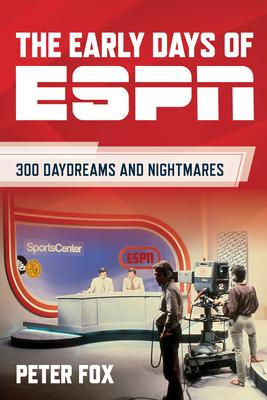The tales of early ESPN people who gambled their careers while critics carped that "all-sports television will never work" are full of guile, luck, fear, fun, and unbridled optimism. As ESPN's founding executive producer, Peter Fox was privy to some spectacular professional efforts by a cadre of Connecticut locals who made the dream real. The first 300 days of the fledgling network were filled with mayhem, on-air gaffes, and the slowest instant replay in television. What started as a humble idea in the late spring of 1978 to capitalize on the brand-new mania for UConn men's basketball soon morphed into ESPN and a plan to begin airing a series of "test broadcasts" in the fall. This is the story of the early days at ESPN, told by one on the network's launching pad, and how a conversation over a couple of martinis in 1978 led to the creation of a broadcast juggernaut.

The tales of early ESPN people who gambled their careers while critics carped that "all-sports television will never work" are full of guile, luck, fear, fun, and unbridled optimism. As ESPN's founding executive producer, Peter Fox was privy to some spectacular professional efforts by a cadre of Connecticut locals who made the dream real. The first 300 days of the fledgling network were filled with mayhem, on-air gaffes, and the slowest instant replay in television. What started as a humble idea in the late spring of 1978 to capitalize on the brand-new mania for UConn men's basketball soon morphed into ESPN and a plan to begin airing a series of "test broadcasts" in the fall. This is the story of the early days at ESPN, told by one on the network's launching pad, and how a conversation over a couple of martinis in 1978 led to the creation of a broadcast juggernaut.